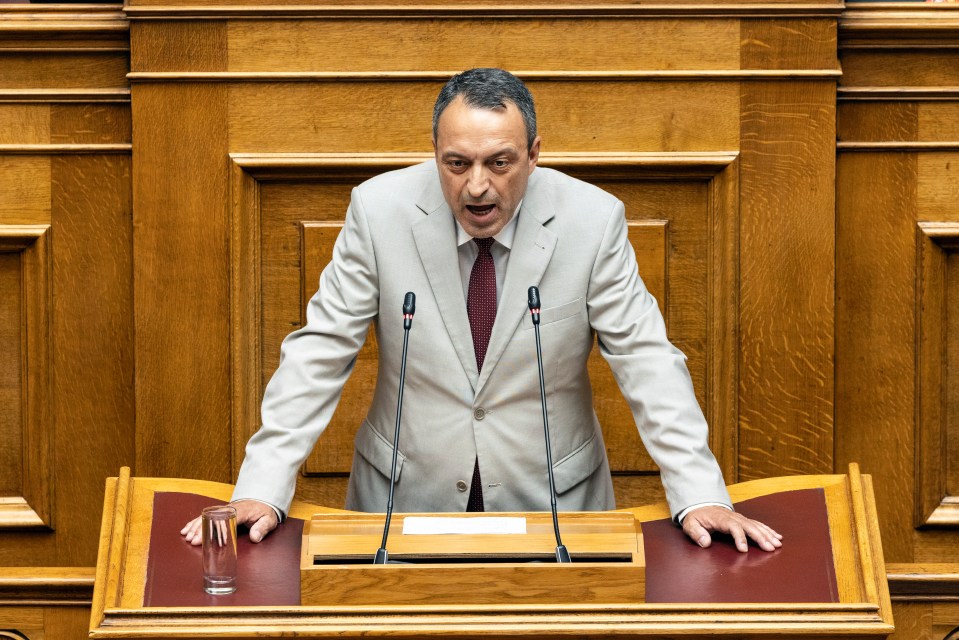
How European far-right leaders are marching to power as Spanish ‘Trump’ waits in wings
SMITH & Wesson revolver-owning Spanish far-right leader Santiago Abascal likes to trot around on horseback spouting his firebrand rhetoric.
Seen as his nation’s Donald Trump, he is keen to wrest Gibraltar from British hands and has called for an end to the “Muslim occupation” of Spain.
The Vox Party leader was heralded as Spain’s potential political kingmaker before Sunday’s general election delivered a hung parliament.
Vox actually lost seats compared to 2019 yet it’s still Spain’s third biggest party, attracting around three million votes.
The snap election was called by prime minister Pedro Sánchez after his Socialist Workers’ Party did badly in May’s local elections.
But it was the conservative People’s Party which emerged as the largest party — although, even with the support of Vox, it was still seven seats short of a parliamentary majority.
Spain has now been plunged into uncertainty, with fresh elections before the end of the year being mooted as a way to solve the parliamentary log jam.
Abascal’s Vox Party would again position themselves as possible partners in a Spanish government.
It would be the first far-right party in power since the death of General Francisco Franco in 1975.
As many as 200,000 political dissidents were executed by the dictator’s militias — and 400,000 others were held in jails and concentration camps.
Most read in The Sun
Many died of malnutrition.
Some believe Spain’s summer election in sweltering heat has left Vox withering on the vine.
However, the lesson from across Europe is that the pernicious far right is resilient — and resurgent.
Parties from across the continent which recently would have been seen as beyond the pale are now becoming part of the political mainstream.
From Sweden and Finland in the north to Italy and Greece in south — and in the EU’s powerhouses Germany and France — the far right is on the march.
There is no 1930s-style click of jackboots on cobblestones across the continent.
Instead, sharp-suited politicos dress up extreme policy in populist soundbites.
The new-found popularity of the far right taps into fears on uncontrolled immigration, national identity, culture wars and the cost of green policies.
In Sweden — once regarded as a bastion of liberalism — a party with neo-Nazi roots now props up a centre-right coalition.
The eurosceptic Sweden Democrats — which came second in 2022 elections — rejects the far right label.
Its leader Jimmie Akesson once called his nation’s Muslim population “the biggest foreign threat since the Second World War”.
'Spitting on beggars'
His party, which began in 1988, grew from white supremacist roots before trading bovver boots for business suits to harness democratic respectability.
After winning 20.5 per cent of the vote at last year’s general election, the SD’s policy demands included a halt to all immigration, the immediate deportation of convicted foreign criminals and a ban on begging.
Meanwhile, in fellow Nordic nation Finland, its new right-wing government was rocked by revelations that far-right Finns party leader and finance minister Riikka Purra had written racist blog posts.
She admitted writing in 2008: “Anyone feel like spitting on beggars and beating (N-word) children today in Helsinki?”
It was just the latest scandal to hit the party that is, astonishingly, the second biggest in the Finnish parliament.
Last month another Finns party minister, Vilhelm Junnila, resigned after it emerged he had given a speech at an event attended by neo-Nazis and called for African women to have abortions to combat the climate crisis.
On Europe’s southern shores, far-right parties won almost 13 per cent of the vote in last month’s Greek general election.
New party The Spartans — seen as a direct descendant of the outlawed neo-Nazi Golden Dawn — gained 12 seats in Greece’s 300-seat parliament.
One Greek newspaper said the elections “have produced the darkest result of the last half-century”.
Across the Ionian Sea, Giorgia Meloni, whose Brothers of Italy party has neo-fascist roots, is prime minister of Italy.
And in France — the EU’s lodestar — National Rally leader Marine Le Pen is riding a wave of support following violent protests across the nation.
Watershed moment
Covering last year’s presidential elections — in which Le Pen won a record 41 per cent of the vote — I was astonished by the large number of young people at her rallies.
Perhaps most surprising of all is the rise of the far-right Alternative für Deutschland in Germany, a nation which has done so much to learn the lessons of its extremist past.
In a “watershed moment”, the far-right AfD won its first district council election in June.
The party has surged in the polls in the past year from ten per cent to 20 per cent, making it Germany’s second most popular — ahead of chancellor Olaf Scholz’s centre-left SPD.
Far right expert Catherine Fieschi, from the Open Society Foundations Europe, said: “After every crisis we have told ourselves that the populists and far right are waning in Europe.
“And the fact is they have been rising more or less steadily, with a few interruptions, since the 1980s.
Read More on The US Sun
“They are really now a part of the landscape.”
It is a lesson those writing off Spain’s Vox should heed wisely.














